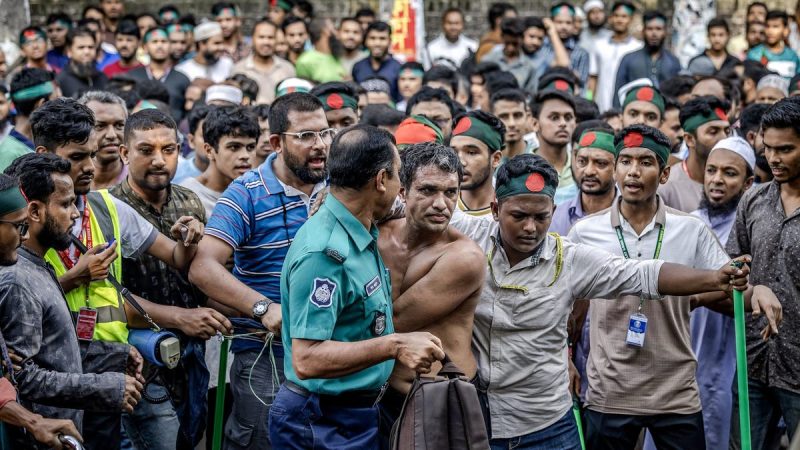From the densely populated capital city of Dhaka to the rural villages along the Brahmaputra River, minority groups in Bangladesh have long endured discrimination and violence. However, following the collapse of the government, these marginalized communities have become easy scapegoats for various factions seeking power and control in the chaos.
One of the most affected minority groups in Bangladesh is the Rohingya community. Originally from neighboring Myanmar, many Rohingya have fled violence and persecution in their home country, seeking refuge in Bangladesh. Yet, even in their adopted home, they have faced widespread discrimination and mistreatment. With the government in disarray, Rohingya refugees have become easy targets for attacks by competing factions vying for power amid the power vacuum.
Another minority group facing escalating violence and mistreatment is the indigenous communities of the Chittagong Hill Tracts. The indigenous people in this region have long struggled to preserve their cultural identity and land rights in the face of encroachment by Bengali settlers and the government. With the collapse of the government, tensions in the Chittagong Hill Tracts have escalated, leading to increased violence and human rights abuses against the indigenous communities.
In addition to the Rohingya and indigenous communities, religious minorities in Bangladesh have also been targeted in the aftermath of the government’s collapse. The Hindu minority, in particular, has faced growing persecution, with reports of forced conversions, attacks on temples, and discrimination in employment and education. With the breakdown of law and order, extremist groups have exploited the chaos to target religious minorities, further exacerbating the vulnerability of these communities.
The situation facing minority groups in Bangladesh is dire, with violence and mistreatment escalating following the collapse of the government. Without a functioning authority to protect their rights and ensure their safety, these marginalized communities are left exposed to exploitation and abuse by various factions seeking to assert power in the vacuum of governance. As the country grapples with political instability and uncertainty, it is imperative that measures be taken to protect and support minority groups, ensuring their safety and upholding their rights in the face of mounting challenges.




























